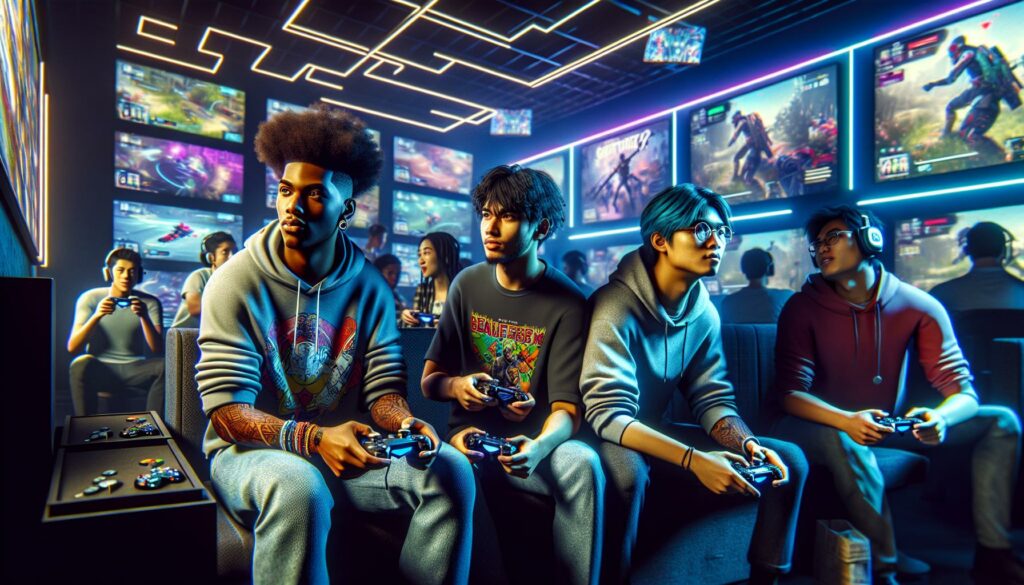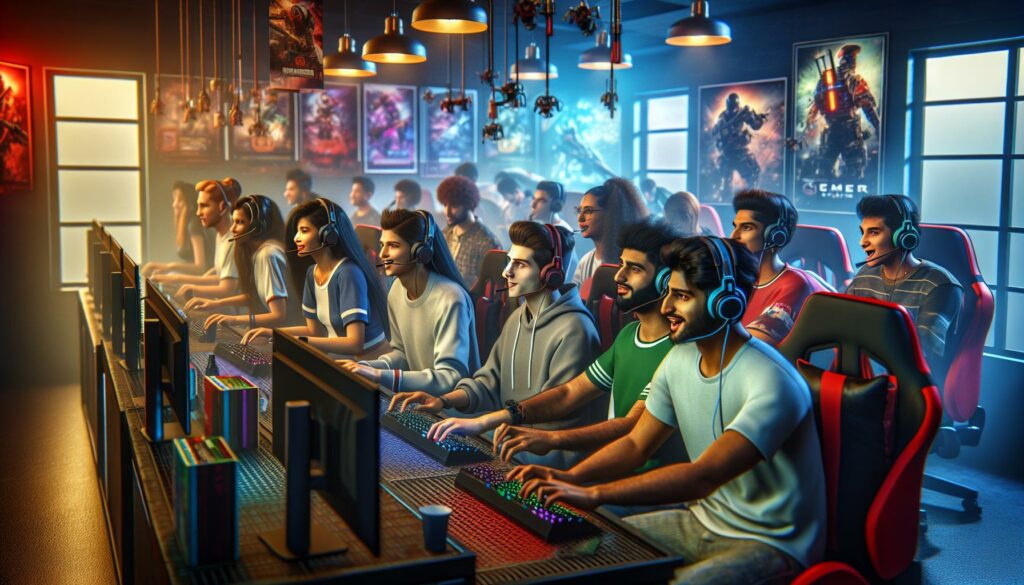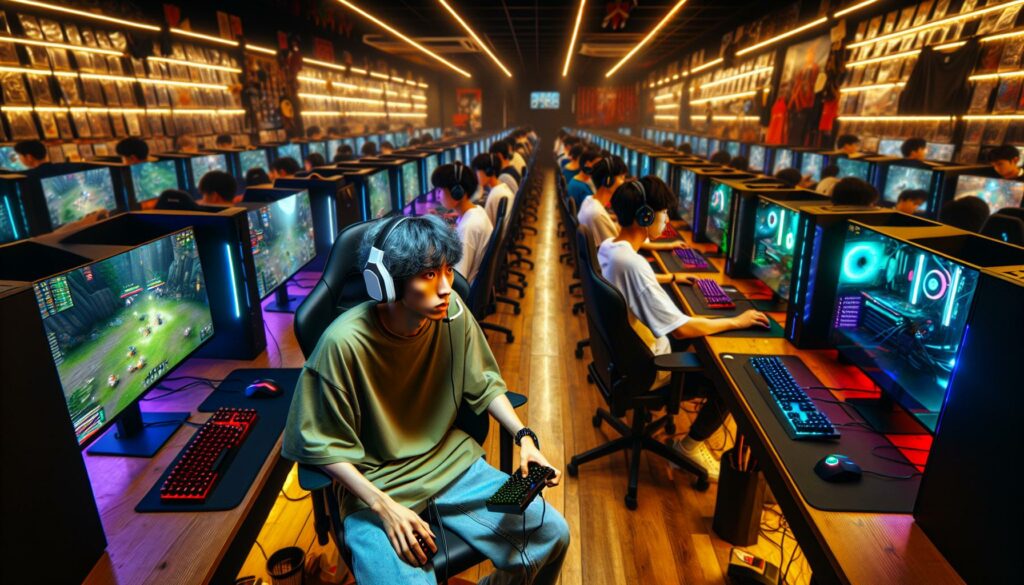Gaming culture has evolved from a niche hobby into a global phenomenon that shapes entertainment social connections and even professional careers. What started in dimly lit arcades has exploded into a multi-billion dollar industry that connects millions of players across virtual worlds platforms and competitive esports arenas.
Today’s gaming culture transcends age gender and geographical boundaries creating diverse communities where players share experiences strategies and friendships. From casual mobile gamers to hardcore PC enthusiasts the gaming world offers something for everyone. It’s a place where people can be heroes villains or creative builders all while forging meaningful connections with others who share their passion.
The Gaming Culture
Gaming culture transformed from isolated arcade experiences into a global digital phenomenon spanning five decades of technological advancement. The progression reflects significant shifts in social interaction, technology accessibility and entertainment consumption.
From Arcades to Living Rooms
The 1970s arcade era established the first gaming communities around physical locations where players gathered to compete on classic titles like Pong, Space Invaders and Pac-Man. The 1980s Nintendo Entertainment System revolutionized gaming by bringing arcade-quality experiences into homes, enabling families to play together in their living rooms. The 1990s saw gaming expand through enhanced graphics capabilities of 16-bit and 32-bit consoles, introducing iconic franchises like Super Mario, Sonic the Hedgehog and Final Fantasy that defined gaming for a generation.
The Rise of Online Gaming Communities
The late 1990s internet boom connected players globally through multiplayer PC games like Quake and StarCraft. Gaming communities expanded exponentially in the 2000s with Xbox Live and PlayStation Network launching console-based online services. Popular MMORPGs like World of Warcraft created persistent virtual worlds where millions of players forged lasting friendships through shared adventures. Social media integration and voice chat capabilities transformed gaming from a solitary activity into a social experience, enabling real-time communication between players across international borders.
Gaming as a Social Phenomenon
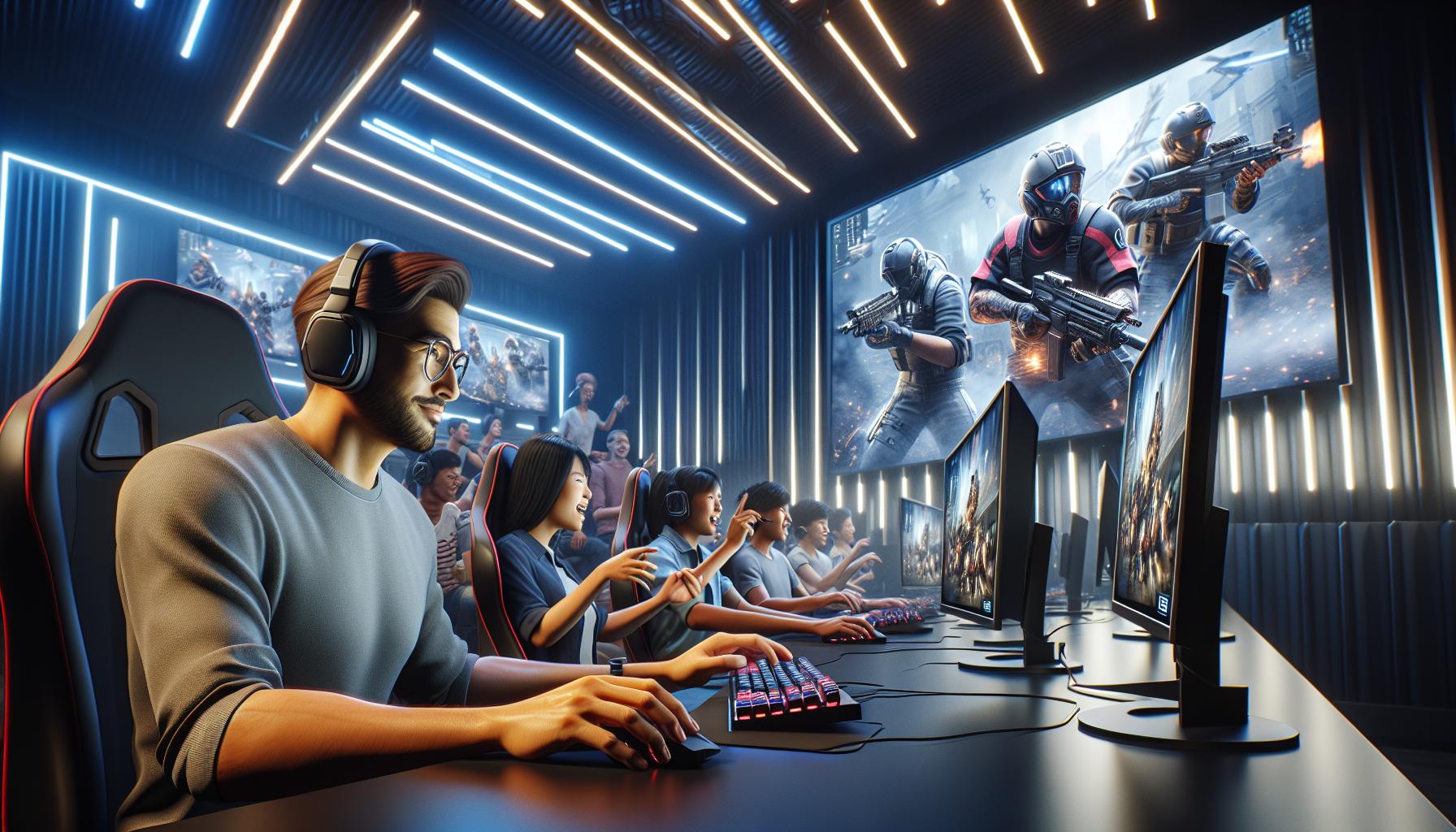
Gaming culture transforms social interactions through digital platforms connecting players worldwide. Online communities create spaces for shared experiences entertainment across diverse demographics.
Streaming and Content Creation
Gaming content creation platforms like Twitch YouTube shape modern entertainment consumption patterns. Top streamers reach audiences of 50,000+ concurrent viewers during peak broadcasts entertaining millions through gameplay commentary personal interactions. Content creators generate $5,000 to $30,000 monthly through subscriptions donations sponsored content. Gaming channels produce diverse content including:
- Live gameplay sessions with real-time viewer interaction
- Tutorial videos teaching advanced gaming strategies
- Gaming news commentary covering industry developments
- Let’s Play series featuring complete game playthroughs
- Behind-the-scenes content showing streamer setups workflows
Esports and Competitive Gaming
Professional gaming competitions attract massive audiences both online in physical venues. Major tournaments offer prize pools exceeding $40 million drawing competitors from 100+ countries. The global esports market generates $1.8 billion annual revenue through:
| Revenue Stream | Annual Value |
|---|---|
| Media Rights | $450M |
| Sponsorships | $640M |
| Merchandise | $300M |
| Ticket Sales | $410M |
- League of Legends with 180 million monthly players
- Counter-Strike featuring 50+ major tournaments annually
- Dota 2 hosting The International with record prize pools
- Valorant expanding competitive scenes across regions
- Overwatch League operating city-based franchises
The Impact of Gaming on Modern Society
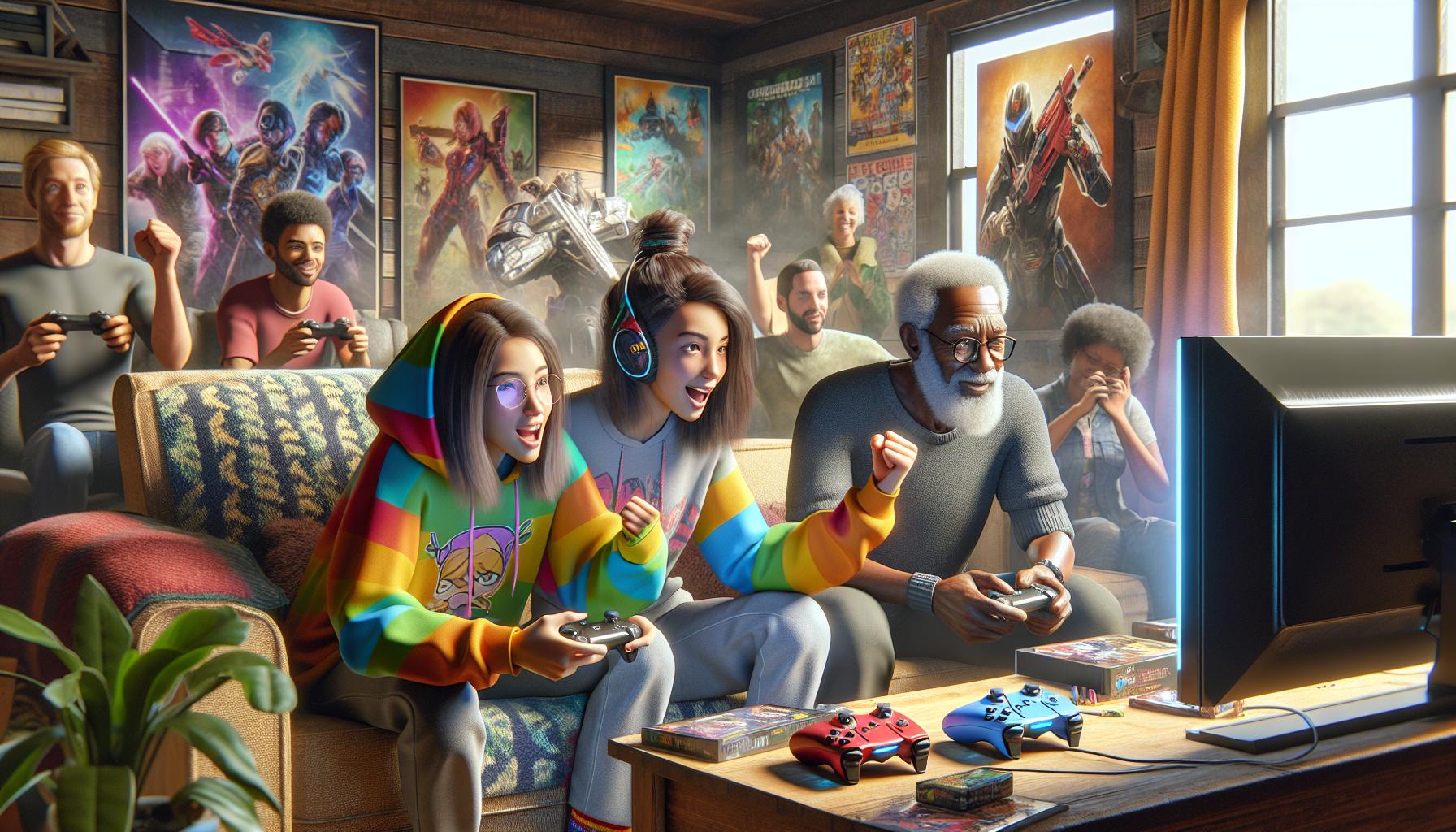
Gaming shapes contemporary society through technological innovation social connections cultural expression. The integration of gaming into mainstream culture transforms entertainment education professional development across diverse demographics.
Gaming’s Influence on Pop Culture
Video game elements permeate modern entertainment through references easter eggs crossover content. Popular franchises like Pokemon Mario Zelda expand beyond games into movies TV shows merchandise generating $200+ billion in franchise revenue. Gaming terminology appears in everyday language with phrases like “level up” “game over” “respawn” becoming common expressions. Movies incorporate gaming aesthetics such as Ready Player One Wreck-It Ralph Scott Pilgrim vs. The World reaching box office earnings of $580+ million combined. Musicians collaborate with game developers creating original soundtracks reaching 150+ million streams on platforms like Spotify. Fashion brands partner with gaming companies producing limited-edition collections generating $325 million in gaming-inspired apparel sales annually.
Breaking Gender and Age Stereotypes
Gaming demographics reflect increasing diversity with 45% of gamers identifying as female 40% over age 35. Mobile gaming platforms attract players across generations with 65% of adults age 50+ playing casual games regularly. Professional gaming competitions feature mixed-gender teams competing for equal prize pools in games like Valorant Fortnite Overwatch. Gaming communities welcome players of all backgrounds through inclusive initiatives accessibility options specialized hardware. Senior gaming groups organize regular online sessions with 2.5 million active members worldwide. Educational institutions incorporate gaming programs attracting diverse student populations with 30% enrollment growth annually in game design courses. Corporate training programs utilize gaming elements reaching employees across age groups improving engagement by 60%.
Gaming Communities and Identity
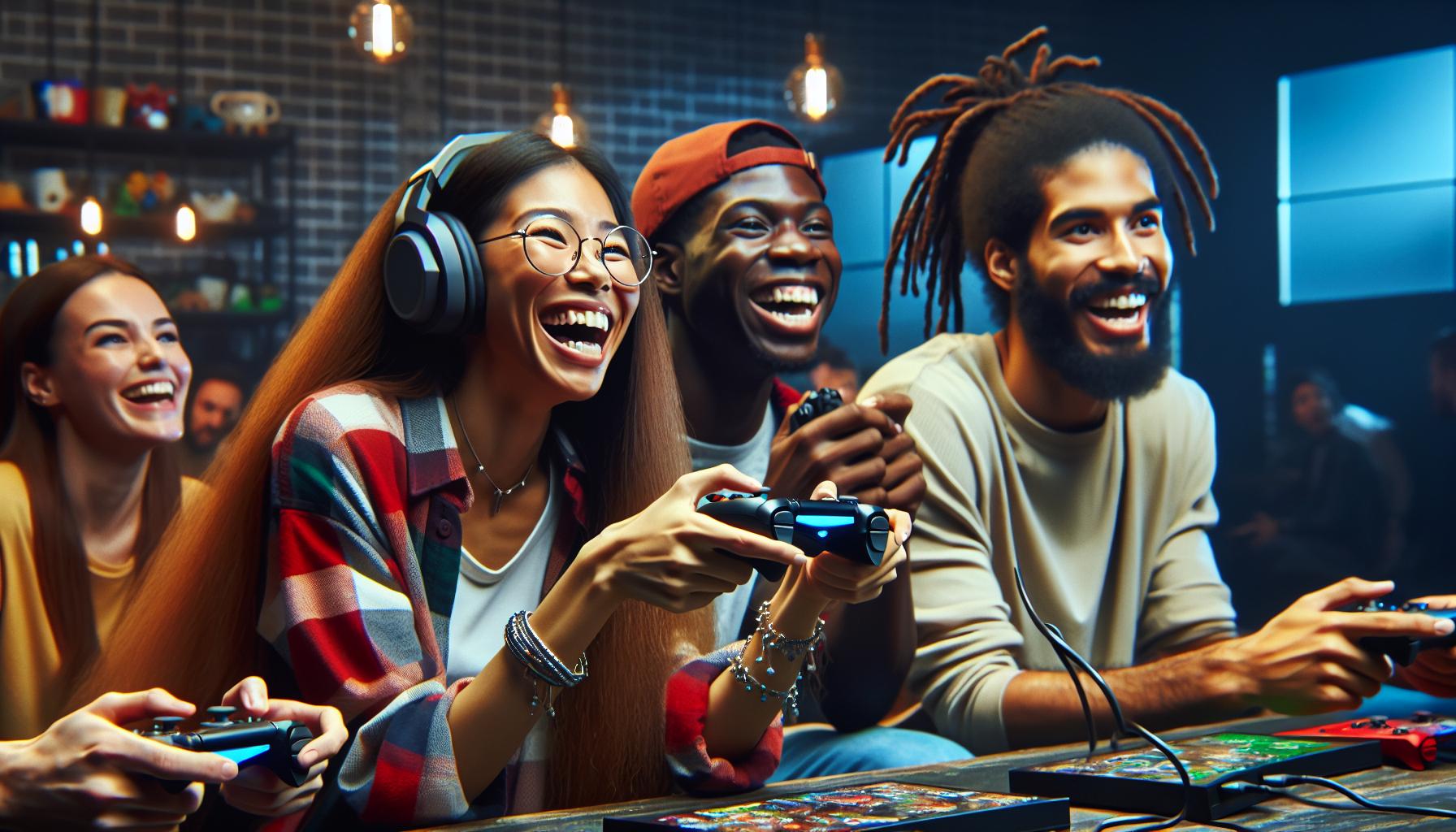
Gaming communities foster unique social identities through shared experiences online platforms. Players form lasting connections through common interests spanning multiple gaming genres platforms.
Virtual Friendships and Relationships
Online gaming platforms create meaningful social bonds through shared digital experiences. Discord servers host over 150 million active users who connect through voice chats gaming sessions. Multi-player games like Final Fantasy XIV maintain dedicated communities where players spend an average of 20 hours weekly interacting with guild members. These virtual relationships often translate to real-world friendships with 64% of gamers reporting they’ve met online gaming friends in person. Gaming platforms provide safe spaces for socialization through moderated environments customizable privacy settings organized community events.
Gaming Subcultures and Tribes
Distinct gaming subcultures emerge around specific genres platforms player preferences. Battle royale communities like Fortnite gather 15 million concurrent players during major events. RPG enthusiasts form guilds with structured hierarchies specialized roles dedicated Discord channels. Speedrunning communities track world records share techniques through platforms like speedrun.com which hosts 1.2 million registered users. Retro gaming collectors maintain active forums marketplaces focusing on preserving gaming history. Modding communities create custom content with platforms like Steam Workshop hosting over 1 million user-created modifications for popular games.
The Future of Gaming Culture
Gaming culture continues to evolve through technological advancements and shifting social dynamics. This transformation shapes how people interact with games and connect through digital entertainment.
Emerging Technologies and Trends
Virtual reality technology transforms gaming experiences through immersive headsets like Meta Quest 3 and PlayStation VR2, reaching 15 million active users globally. Cloud gaming services enable instant access to extensive game libraries without expensive hardware, with platforms like Xbox Cloud Gaming attracting 30 million subscribers. Artificial intelligence enhances gaming experiences through:
- Adaptive difficulty systems that analyze player behavior
- Procedurally generated content creating unique environments
- NPCs with natural language processing capabilities
- Dynamic storytelling engines that personalize narratives
Blockchain gaming introduces new ownership models through:
- Digital asset ownership via NFTs
- Play-to-earn mechanics in established games
- Cross-game item transfers
- Decentralized gaming platforms
- 120Hz displays for smoother gameplay
- Ray tracing capabilities on premium devices
- Advanced haptic feedback systems
- Cloud streaming optimization
Global Revolution
Gaming culture stands as a testament to the transformative power of digital entertainment. What started in dimly lit arcades has evolved into a global phenomenon that shapes entertainment media social connections and professional opportunities worldwide.
Today’s gaming landscape reflects an inclusive environment where players of all backgrounds come together to share experiences create memories and push the boundaries of digital interaction. As technology continues to advance gaming culture will undoubtedly evolve bringing new ways for people to connect compete and create together.
The future of gaming promises even more innovation with emerging technologies like VR AI and blockchain reshaping how we play and interact. This dynamic culture isn’t just about playing games – it’s about building communities celebrating diversity and embracing the endless possibilities of digital entertainment.

